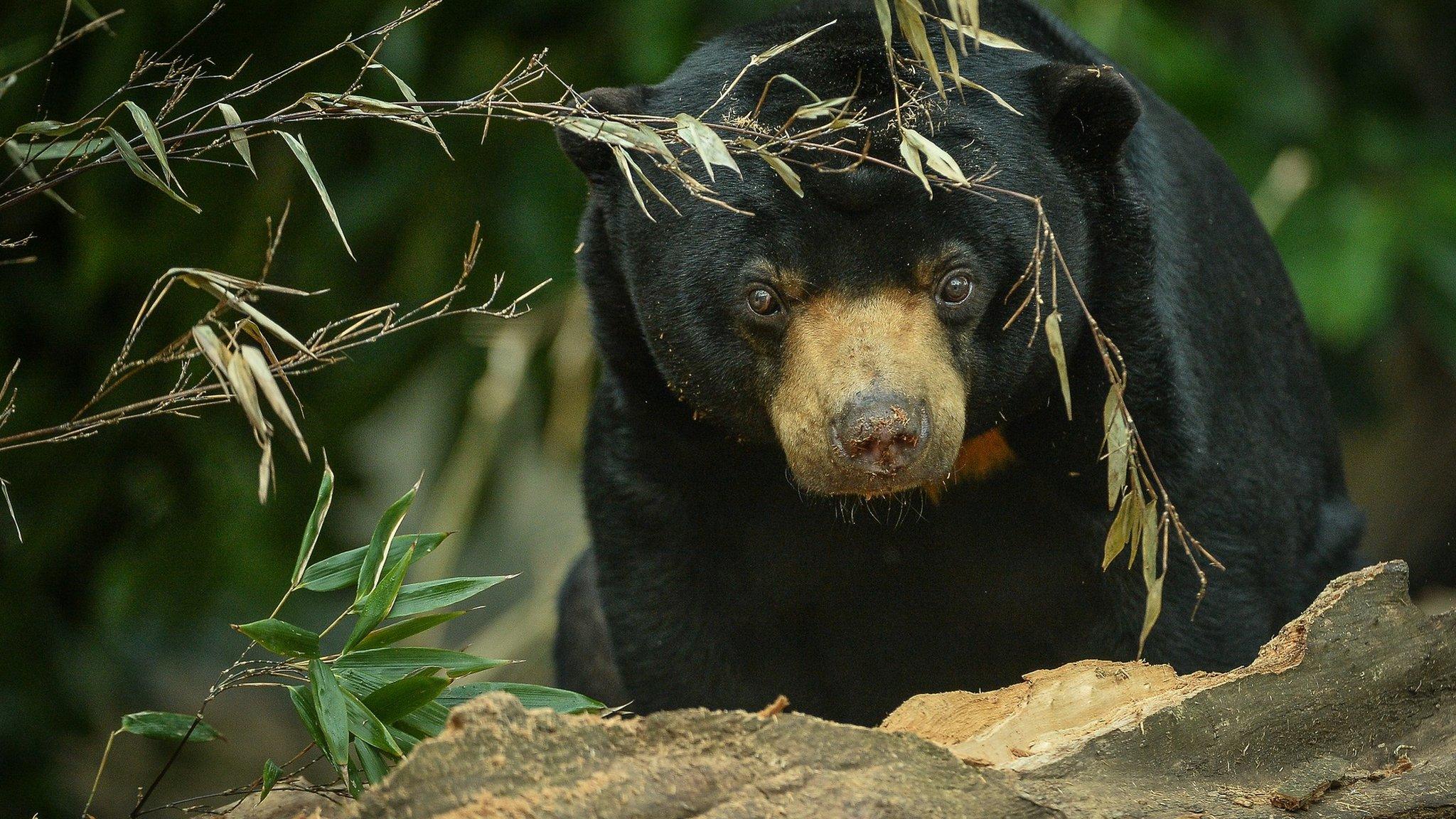Slow lorises being sold on Facebook rescued in West Java
- Published
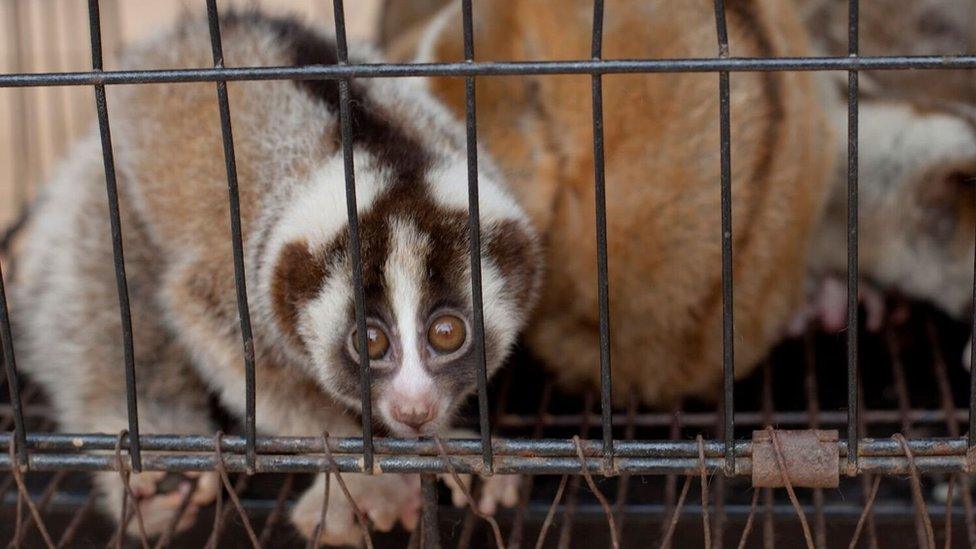
The slow loris is the world's only venomous primate
Indonesian police have rescued 34 slow lorises destined to be sold as pets on Facebook.
The officers discovered the critically-endangered species crammed into cages in West Java.
The world's only venomous primate has become popular in recent years thanks to a proliferation of YouTube videos portraying them as cute and cuddly.
But the rising demand for slow lorises as pets is pushing the species to the brink of extinction.
Hunters sell the lorises to dealers for £3 ($3.66), while traffickers can get as much as £31 ($37.90) each, said Diki Budiman, assistant director of the police unit dealing with the case in West Java.
Teeth cutting
Captivity alone is traumatic for each loris - just being in a brightly lit room is painful for the nocturnal creature.
Animal traffickers go further, cutting their teeth with pliers, wire cutters or clippers to make them easier and safer to handle.
The painful procedure can be fatal. If they survive, more than half will die during transport.
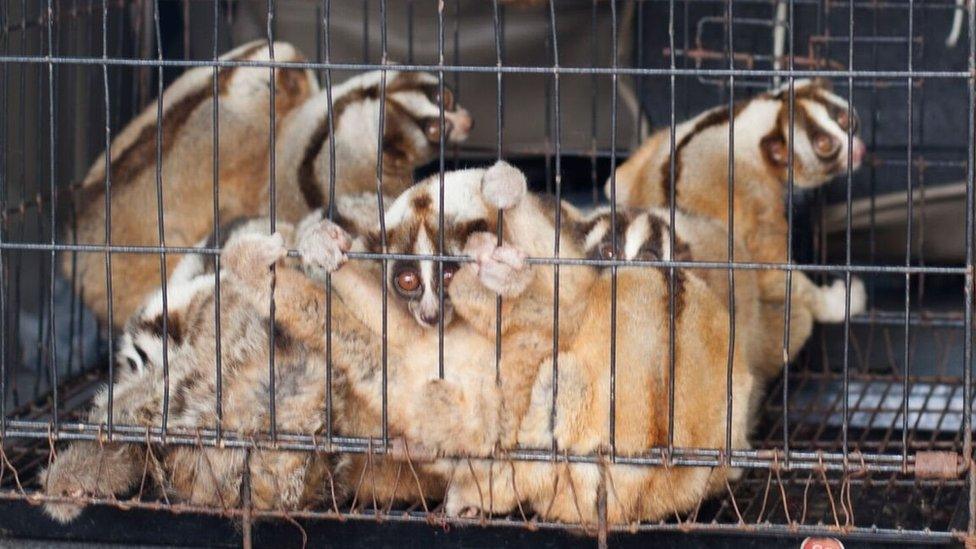
Because their venom can be harmful to humans, slow loris dealers cut their teeth
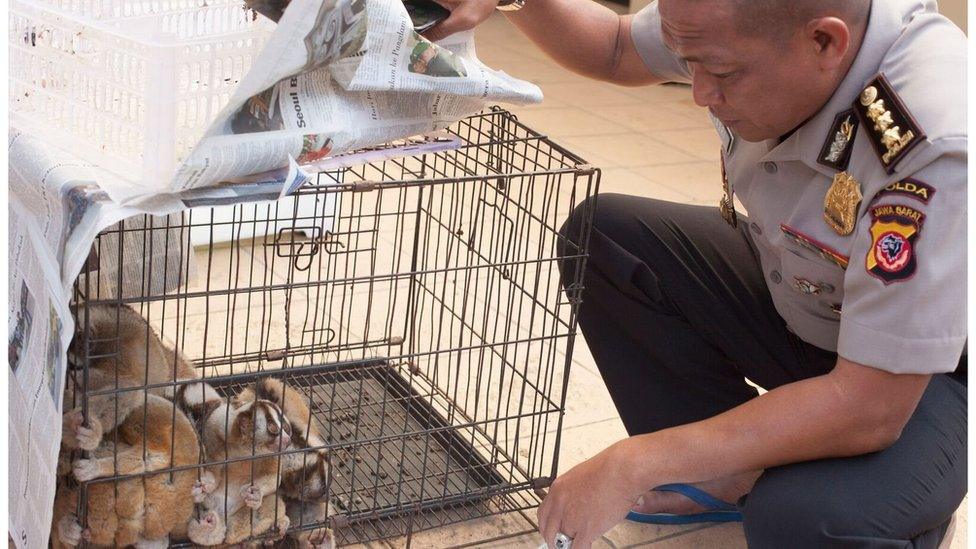
This raid resulted in five arrests - two hunters and three dealers
"It is a bit difficult to say how many die exactly, but we estimate it probably is about 80%," Christine Rattel, of International Animal Rescue, external, who are now caring for the lorises, told the BBC.
"They can die from stress alone."
Under Indonesian law, hunting, capturing or keeping slow lorises as pets is strictly forbidden.
But the reality is that slow lorises are sold openly in the markets of Indonesia, and now Facebook makes it easy for traders to set up business.
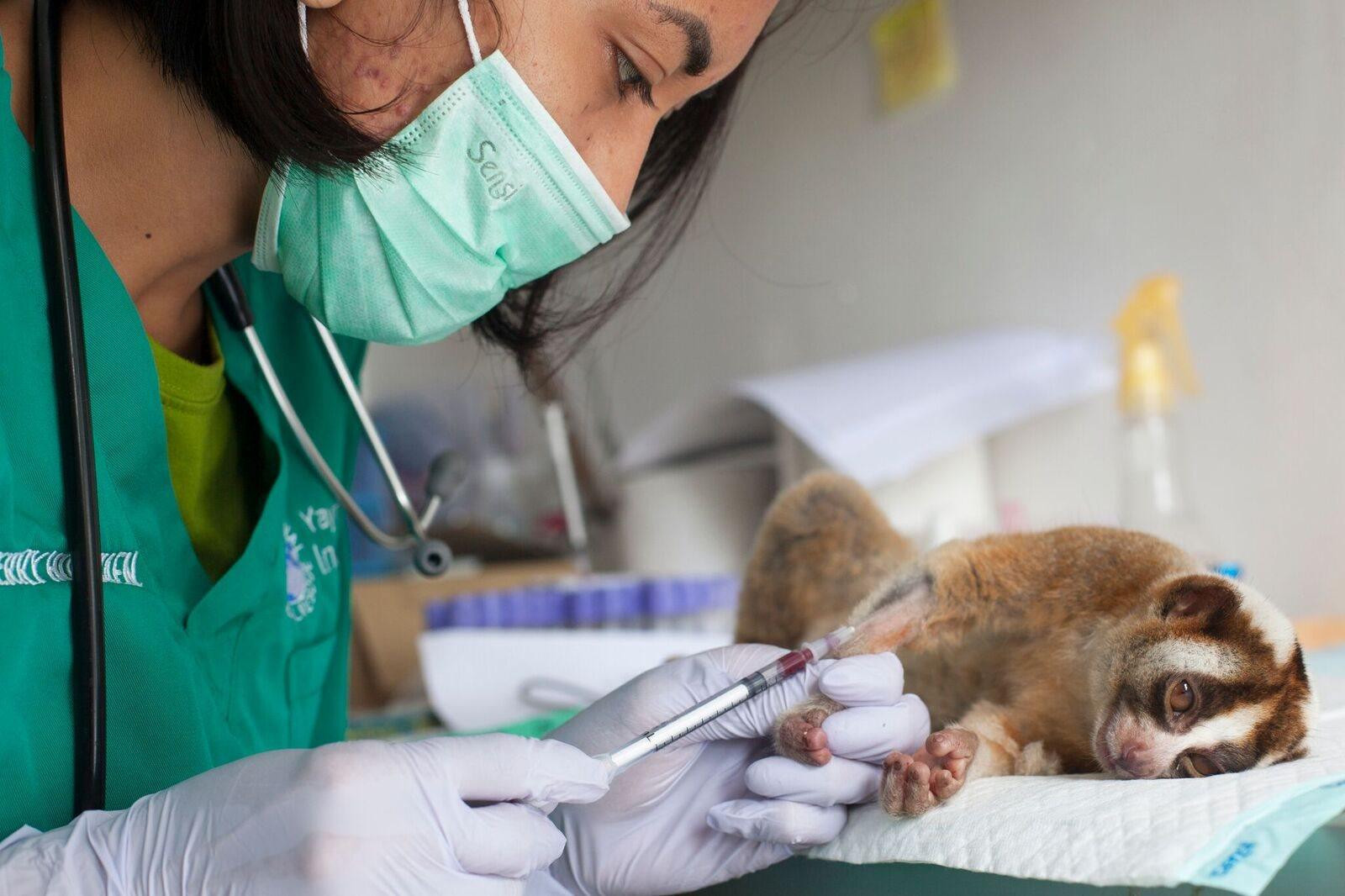
The animals were all highly stressed, and some had injuries
On this occasion, Indonesian police managed to arrest five people - two alleged hunters and three dealers - before the lorises had even gone on sale.
Because of their swift actions, the animals got away relatively unscathed, with only one having its teeth cut. International Animal Rescue later discovered six were pregnant.
More worryingly, at least five had air rifle bullet wounds, with one of the pregnant females losing her sight in one eye.
"The good thing in this particular case is that they had been hunted just before," said Ms Rattel. "They have not been long in captivity, and we will probably be able to release them fairly soon.
"We just need to find somewhere to return them to the wild."
- Published19 August 2014
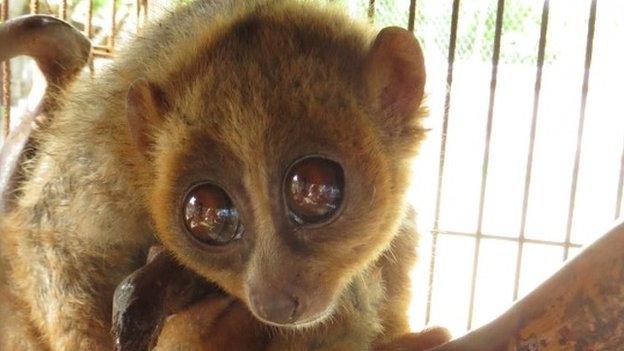
- Published23 September 2016
- Published8 May 2016
